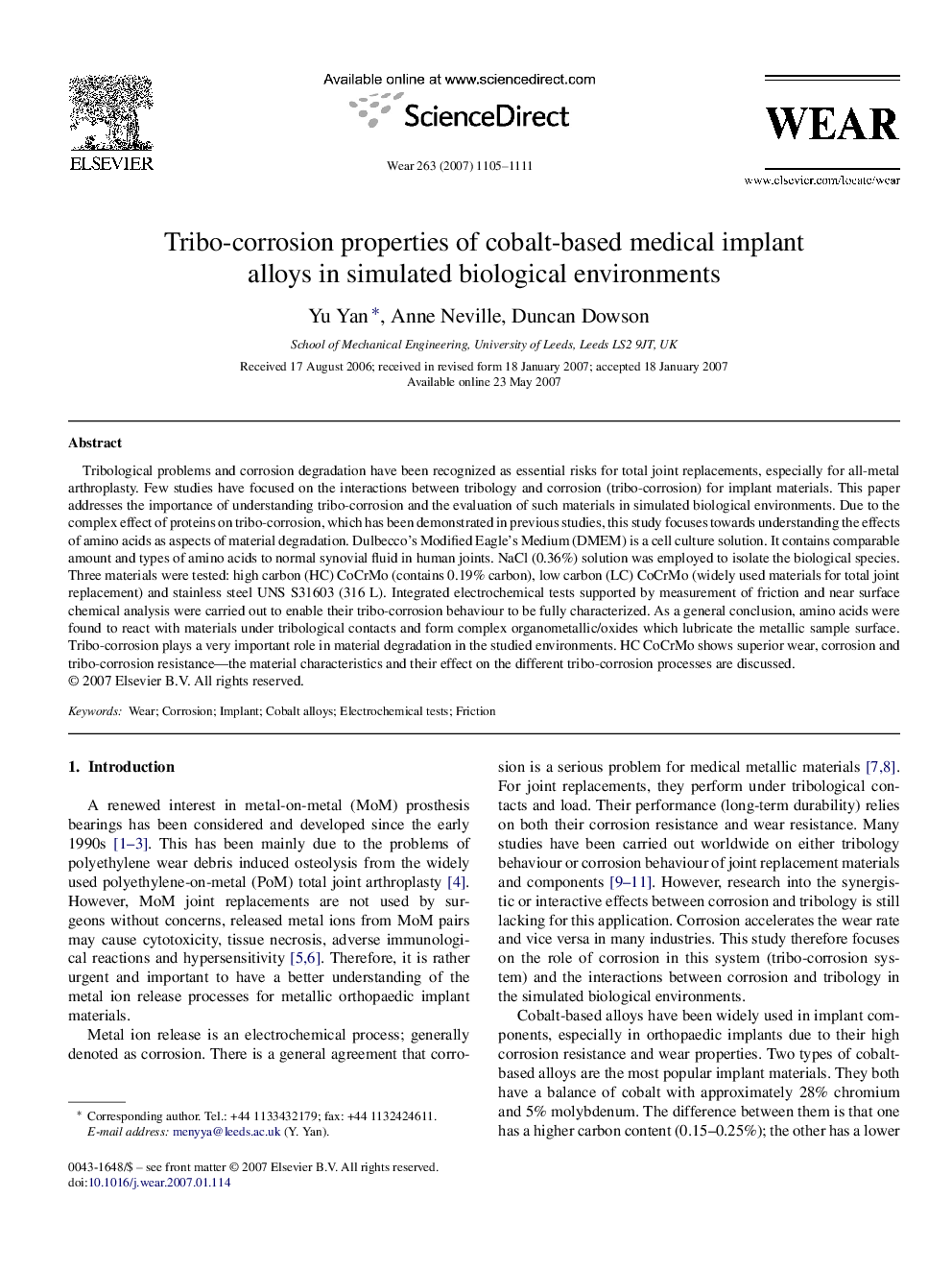| Article ID | Journal | Published Year | Pages | File Type |
|---|---|---|---|---|
| 620003 | Wear | 2007 | 7 Pages |
Tribological problems and corrosion degradation have been recognized as essential risks for total joint replacements, especially for all-metal arthroplasty. Few studies have focused on the interactions between tribology and corrosion (tribo-corrosion) for implant materials. This paper addresses the importance of understanding tribo-corrosion and the evaluation of such materials in simulated biological environments. Due to the complex effect of proteins on tribo-corrosion, which has been demonstrated in previous studies, this study focuses towards understanding the effects of amino acids as aspects of material degradation. Dulbecco's Modified Eagle's Medium (DMEM) is a cell culture solution. It contains comparable amount and types of amino acids to normal synovial fluid in human joints. NaCl (0.36%) solution was employed to isolate the biological species. Three materials were tested: high carbon (HC) CoCrMo (contains 0.19% carbon), low carbon (LC) CoCrMo (widely used materials for total joint replacement) and stainless steel UNS S31603 (316 L). Integrated electrochemical tests supported by measurement of friction and near surface chemical analysis were carried out to enable their tribo-corrosion behaviour to be fully characterized. As a general conclusion, amino acids were found to react with materials under tribological contacts and form complex organometallic/oxides which lubricate the metallic sample surface. Tribo-corrosion plays a very important role in material degradation in the studied environments. HC CoCrMo shows superior wear, corrosion and tribo-corrosion resistance—the material characteristics and their effect on the different tribo-corrosion processes are discussed.
